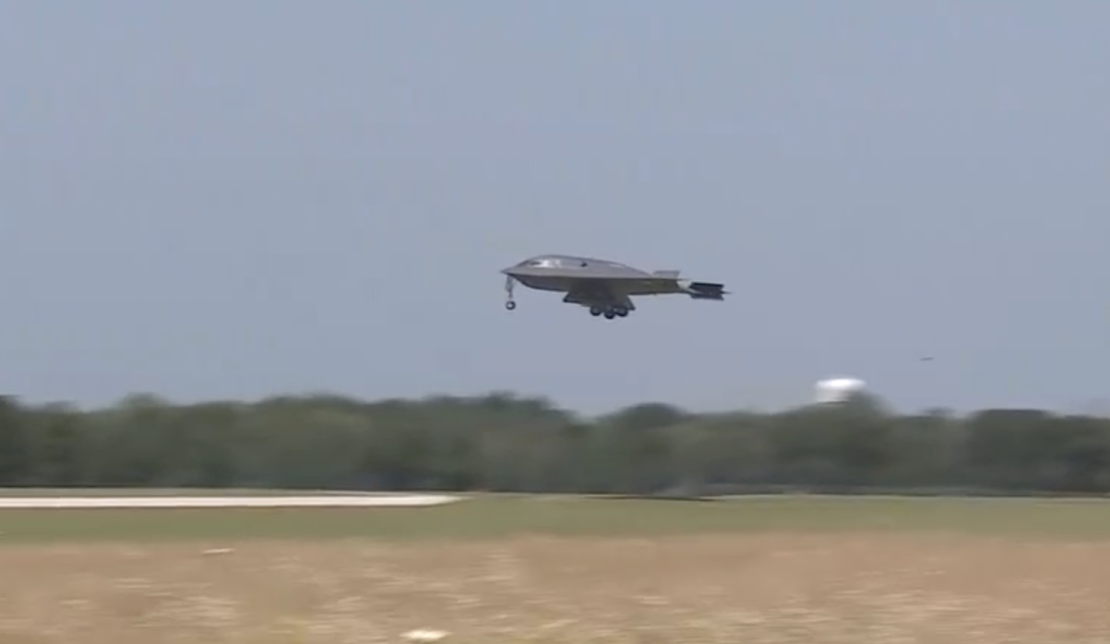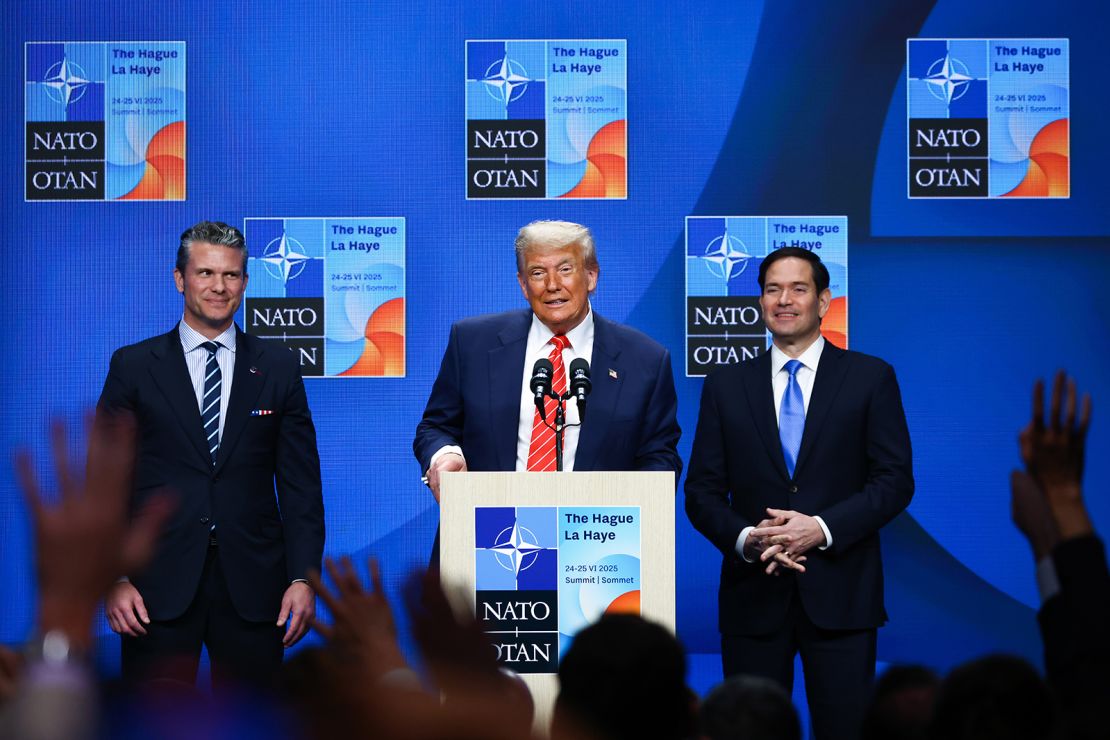CNN
—
There are two reasons why President Donald Trump needs the world to believe his adamant claims that Iran’s nuclear program has been obliterated.
First, his entire presidency is set up to reflect glory on his own strongman persona, fueling a narrative of courageous, unique and infallible leadership. Information that contradicts the myth is not welcome.
Second, any evidence that Iran retains the capability to manufacture nuclear weapons or to restart its program after daring US bombing raids would raise an uncomfortable question: Should the United States use military action again to try to finish the job and meet any future advances in Iran’s capabilities with more strikes? This would potentially open a yearslong period of quasi-war with Iran for which Trump has no appetite; raise the risks of a wider conflict; and anger his MAGA base.
Trump and his top lieutenants are conjuring amped-up outrage and slamming the media for reporting an initial, “low confidence” assessment by the Defense Intelligence Agency that US attacks on three of Iran’s facilities failed to destroy the core components of its nuclear program and likely only set it back by months.
Trump redoubled his efforts in a news conference at the NATO summit to portray the raid as “very, very successful.” He added, “It was called obliteration. No other military on Earth could have done it.”
Defense Secretary Pete Hegseth launched a theatrical outburst against CNN and The New York Times after they reported on the assessment. Such outlets “try to find a way to spin it for their own political reasons to try to hurt President Trump or our country, they don’t care what the troops think,” Hegseth said, showing the performative zeal that prompted the president to lift him from Fox News to head the Pentagon.
The White House highlighted an assessment from Israel’s military chief of staff Wednesday that Iran’s nuclear program suffered “systemic” damage and was set back years, and CIA Director John Ratcliffe said in a statement that the agency had evidence it had been “severely damaged.”
But these statements, while suggesting Iran has suffered a serious blow, do not yet fully support Trump’s expansive claims.
The president’s tactics were familiar. He is going global with his strategy of creating his own narratives whether or not there is yet evidence to prove them. He showed how successful this could be with his false claims of election fraud in 2020.
If the world believes that Iran’s nuclear program is destroyed and all sources suggesting otherwise are discredited, Trump has a rationale for taking no further action.

Everything that involves intelligence is, by definition, opaque. And lasting judgments, from technical or human sources, on how far the US set back Iran’s nuclear program could take months. It’s also not possible to know whether the administration does have more information on the aftermath of the strikes that it is not releasing for operational reasons.
A more judicious initial White House response to the raids might have avoided the current controversy. But its frantic spin was inevitable, since Trump declared while B-2 bombers were still aloft that Saturday’s mission was a total, overwhelming success. Any contrary evidence would mean an embarrassing reversal and challenge his ego and credibility.
But the hyper-emotional response to honest questioning over whether Iran’s nuclear program has truly been wiped out makes the White House look defensive, raising doubts about its truthfulness. And it is distracting from aspects of the mission for which Trump can claim credit – a flawless round-the-world bombing raid with no US casualties and his effective pressure on Israel and Iran to stop fighting as well as his success in not being pulled into a longer war.
Growing controversy over Iran also overshadowed an undeniable achievement by Trump at the summit in the Netherlands in getting a commitment from member states to spend 5% of GDP on defense by 2035. The target will be hard to reach. But no other president came close to achieving anything similar.
The White House only has itself to blame.
Its failure to properly explain to Americans why Trump’s administration suddenly came to believe Iran was weeks away from building a nuclear weapon created suspicion over its motives. Its failure to inform some top Democrats that the B-2 bombing mission was underway needlessly politicized an issue on which Trump could expect substantial support across the aisle. The administration then postponed Capitol Hill briefings on the strikes until Thursday. It’s unclear whether those sessions will be productive.
Trump’s intelligence chiefs rushed to bolster his claims on Wednesday. Ratcliffe’s statement said the CIA had obtained “a body of credible evidence” that Iran’s nuclear program had been “severely damaged.” This included intelligence from a “reliable source/method that several key Iranian nuclear facilities were destroyed and would have to be rebuilt over the course of years,” Ratcliffe said. His comments fell short, however, of Trump’s claims of obliteration.
Director of National Intelligence Tulsi Gabbard posted on X that “new intelligence” showed that Iran’s nuclear facilities had been “destroyed.”
None of the pushback offered evidence that would allow Americans to make up their own minds. It did nothing to back up Trump’s claim in the Hague Wednesday that Iran had not moved any of its stock of enriched uranium before the raids. Nor did it address whether Iran maintains secret facilities that it could use to race toward a bomb.

Contrary to what Hegseth claimed, it is not unpatriotic to report information confirmed by administration officials questioning the extent of the damage to Iran’s nuclear program. And no one is attacking the pilots of the B-2 bombers who undertook the hazardous multi-hour mission. The tone of media coverage of their efforts has been marked by marveling rather than criticism.
The issue is whether the bunker-busting bombs, used in action for the first time, really did penetrate the Fordow nuclear facility, buried under hundreds of feet of rock and cement, and destroy centrifuges that spin uranium. And it’s about whether Trump is truly fulfilling his duties as president if he ignores any evidence the objectives were not fully met.
The administration’s wild reaction to the preliminary, low-confidence Pentagon intelligence report creates another dangerous possibility – that it’s pressuring the intelligence community to tailor intelligence to meet its political needs.
This corrosive trend has been disastrous to US national security in the past. Such behavior is a major concern with huge national security implications under a president who has trashed the US intelligence community and appointed officials to lead it who share his politicized views.
Future intelligence reports – which could take months to conduct – might well conclude that Iran’s nuclear program has been destroyed or set back far from the point of approaching a weapon.
If they don’t, Trump has a huge political and diplomatic problem.
Now that the United States has taken military action alongside Israel in an attempt to eradicate Iran’s nuclear program, he has created a standard for himself.
If credible evidence emerges that Iran has salvaged aspects of its program, either centrifuges or stocks of enriched uranium, as has been reported, the president – or Israel –will come under pressure to take new action to stop it. The International Atomic Energy Agency has said it’s possible that Iran moved uranium, which is easily portable, before US and Israeli raids.
Future US action against Iran could create the conditions for the prolonged war or deeper low-level conflict in the Middle East that Trump has sworn to avoid, and that would threaten to create a new fracture in his “Make America Great Again” political base.
There is a precedent for such prolonged and expensive engagements. After the 1991 Gulf War, the US-led coalition maintained no-fly zones in Iraq to protect the Kurdish minority in the north and Shiites in the south and to contain Saddam Hussein’s military for more than a decade.
Uncertainty over the fate of Iran’s nuclear program could also complicate efforts to reach a diplomatic solution with the Islamic Republic. Trump said at the NATO summit on Wednesday that US and Iranian negotiators would meet next week. Trump’s special envoy Steve Witkoff told CNBC on Wednesday that his boss was looking for a “comprehensive peace agreement” with Iran that would go beyond the nuclear question. It would be an extraordinary breakthrough after 45 years of antagonism. If Trump could end the US estrangement with the Islamic Republic – perhaps after breaking the foundation of Supreme Leader Ayatollah Ali Khamenei’s power with military action – he could rightfully claim a major legacy achievement.
“I think that they are ready; that is my strong sense,” said Witkoff.
Yet such hopes are dependent on developments in the opaque Iranian system; political forces that the US cannot control; and extremist elements, including in the Islamic Revolutionary Guard Corps, that have a lot to lose in terms of prestige and economic power if the regime changes or falls.
Some experts believe that Iran will respond to the US and Israel assault by reasoning that it is even more imperative to develop a nuclear bomb to ensure the regime’s survival. And if Tehran rejects cooperation with the IAEA and its inspectors, it might be able to evade outside monitoring.
Trump, however, played down expectations for a lasting agreement with Iran on Wednesday. “We may sign an agreement. I don’t know. To me, I don’t think it’s that necessary. I mean, they had a war. They fought, and now, they’re going back to their world. I don’t care if I have an agreement or not,” the president said.
He implied that a statement by Iran not to seek nuclear weapons would undercut his own claim that their program was obliterated.
The complete truth may not be known for months.
But it would be a deep irony if, 20 years after a war provoked by cherry-picked intelligence on a weapons of mass destruction program that did not exist, another White House tweaked intelligence to misrepresent a program in Iran that was active.

